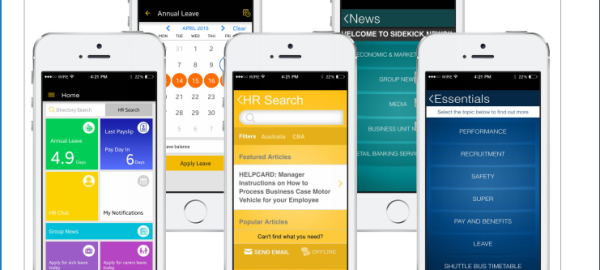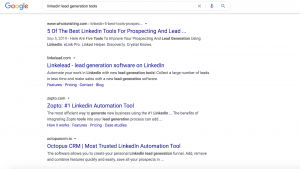What do United States (U.S) television series “The Office”, the American comic strip “Dilbert” and Israeli firm “The Human Resources Manager” all have in common? Aside from the very talented cast these media productions have they depict what is human resources (HR) with a twist. The specific function of human resource management (HRM) or just simply HR is to some extent attempt to maximize employee performance that aligns with the employer´s objectives, according to Wikipedia.
As the economies of the world become increasingly become globalized, HR continues to be reshaped by the invasion of technologies, mobile applications and social media. All of these have impacted the profession in a very big way. The technology in this industry for the upcoming year will be characterized by a number of disruptive trends including the arrival of HR software applications, and a shift toward a more consumer-like experience of HR administration, conforming to HR.BLR.com.
The invasion of social media networking including mobile technologies ushered a wide array of new tools making it that much easier to communicate. An analysis by Smallbusiness.chron.com asserted social and mobile tech has enabled HR to expand services. In other words, it has made communication that much easier and fast between employees in the companies that utilized them.
Those HR departments that implement, adapt and embrace the integration of these platforms (social channels and mobile) will be better off. It will allow them to improve existing infrastructure and eventually include training programs for development of the company staff.
Insights, shifts and development for HR
The shifts within the HR industry will yield naturally lots of innovative tools, improved productivity and doing more with the new technology. Below an infographic will illustrate the top trends for 2014 and beyond:
As the above visual graphic shows these are the areas of where HR is expected to evolve towards:
- “More coaching and employee development”
- “Better technology for recruiting and screening”
- “A focus on financial wellness”
- “Moving past the employee engagement survey”
- “Preparing for health care reform”
The idea of coaching or feedback is with the intent to improve not just performance, but assisting people on their career path that makes sense for their development in the long run. This deployment of training along with feedback helps to minimize company turnover.
The use of advance software in HR will help the recruitment process by using analytics, big data and tech tools. The days of sorting through folders and hundreds of files will be history thanks to the simplification and robustness of the technology.
It seems as if this was not of great importance, but companies focusing on the financial stability and well-being of employees is a must for the company to thrive.
On the other hand, annual surveys provide just a quick and vague glimpse on the status of staff. For organizations to really improve they must have a company culture and structure tailored around continuous engagement.
The other trend to carefully examine is the adjustments required to with regards to the Affordable Care Act. Because this will make healthcare plans more affordable, it will offer comprehensive coverage to most of the employees within a company, confirms the infographic.
An entrepreneur.com report looked at three best practices as a clue to how HR will shape the dynamics: a new business partner, a new way of looking at things, and a new helping hand.
The new business partner means HR professionals will be more heavily involved and provide plenty of assistance for chief executive officers (CEO). The reason to why this is happening is the role of HR will be crucial to the strategic business planning.
As far as the second aspect is concerned HR will need to master their responsibilities, duties and workforce analytics. This means understanding and executing workforce analytic tools (engagement, satisfaction surveys, 360-degree review software, etc.).
Finally, human resources software is rising and within this Entrepreneur article it pointed out that 53 percent of companies with over 1,000 employees will invest in HR software program.
Outlook for HR Technology Disruption in 2016
Whatever insight or knowledge you may have about HR technology one thing is clear it is changing at lightning speed. The information compiled by Bersin.com offers a set of comprehensive findings some of the big disruptions for the upcoming year:
- “Consumerized HR Technology: Think Employee Tools, Not HR Tools”
- “The Appification” of Everything: Mobile Apps as a New HR Platform”
- “Emergence of ERP Providers in Expanding Talent Management Segment”
- “Built-for-the-Cloud Providers Redefine HR Functions
As the old HR technology matures and fades away with the arrival of next-generation software look for user interfaces to become easier-to-use. In addition, the HR technology will look to mimic the consumer interface increasingly, improving usage experience and making it simpler to learn on the go.
With over 2.1 billion smartphone dedicated app this will be the avenue for companies to develop their platforms on and build upon for improved processes particularly for HR. One example that is mentioned in the Bersin report and file is how the Commonwealth Bank of Australia developed a Sidekick Mobile App System to manage all aspects of the employment experience as an extension of HR.
The Commonwealth Bank of Australia’s Sidekick Mobile App System

The competition and space for enterprise resource planning (ERP) will once again open the doors and pave the way for vendors to present themselves as providers and platforms. They will help manage the talent management market, which includes small startups competing in this space along with midsize companies and software vendors, as stated in the Bersin research.
The cloud services have been growing exponentially at with the market reaching $ 25.2 billion in 2015. So, this will mean the ERP vendors will have profound effects on areas like payroll, learning content, learning technology, communications and people-to-people services, etc. Furthermore, ThinkHR, platform of integrated resources and training supported by live HR experts, introduced an industry first tool that enables employers to create a handbook that features the policies of all 50 states to stay informed on policy changes. It is an effective resource to make available giving the number of employee related litigation cases filed annually.
Conclusions and takeaways
HR is something that is here to stay and with the flood of technology in mix it will leader to greater improvements along with efficiences. As companies continue to expand implementations of new technology will better the retention of employees, fuel engagement and be a huge return on investment (ROI) for making the transition to the previously mentioned disruptive trends.
The technology available in the marketplace from the social media sphere, the mobile space and cloud dominion these will continue to converge and overlap with each depending on the size and different industries.
In conclusion, like most industries today the HR profession and technology will never be the same again thanks to the integration of new technology into a company´s old system.
Business & Finance Articles on Business 2 Community(80)








